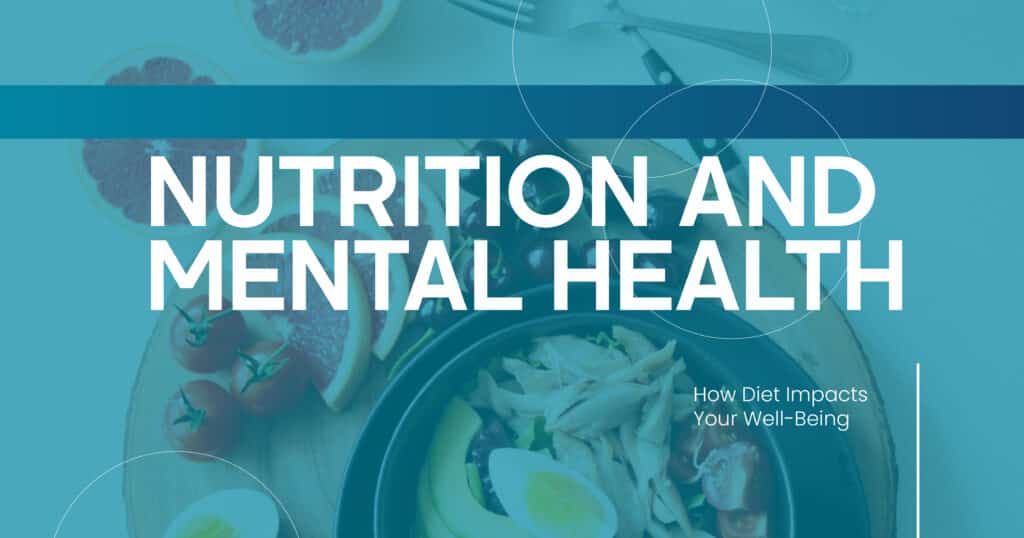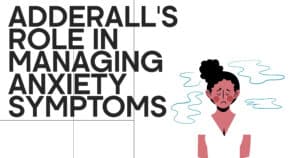What we consume does more than just fuel our bodies, it directly affects our mental and emotional well-being. Since the whole human body works, so does the brain if it has a balanced diet. A well-balanced diet will improve moods, reduce tension, and even help with symptoms of depression.
Conversely, a bad diet can create mental health problems. This post explores the complex relationship between nutrition and mental health, which foods can help you develop the emotional resilience needed to stay healthy, and how you can design a diet that feeds your mind and body.
How Nutrition Influences Mental Health
The adage “you are what you eat” takes on a profound weight when applied to mental health. Our diet forms the foundation for the health of our brain, allowing that organ to produce neurotransmitters to better regulate hormones and ward off oxidative stress. Without such basics, the brain fails to do its thing, and emotional instability and cognitive decline follow.
It has been proved that diet influences mental health. A diet rich in whole grains, fruits, vegetables, and lean proteins tends to have a relatively lower incidence of depression and anxiety compared with other diets that are high in processed foods and sugars, which elevate the risk for mental health disorders. So nutrition and mental health-supporting diets are about creating nutrient-rich food that feeds the brain and stabilizes moods.
The Link Between Nutrition and Brain Function
The brain is a very active organ that begs to take a significant share of the body’s energy supplies. This means it needs the nutrients we intake daily. Let me begin by looking at energy supply, for this should set the foundation for all else.
Energy Supply | The brain should have a constant supply of glucose as its energy source. Complex carbohydrates, such as whole grains, ensure the slow release of energy, while simple sugars cause spikes and crashes that make the person appear irritable and tired. Therefore, nutrition and mental health have a great connection for energy supply for optimum functioning. |
Neurotransmitter Production | Good ingredients that can form neurotransmitters may include Amino acids, B vitamins, and Omega-3 fatty acids, which lead to the formation of serotonin and dopamine, for instance, control agents that maintain good moods and feelings. |
| Cognitive Performance | Some antioxidants in bright-colored fruits and vegetables guard the brain cells against oxidative attacks and help maintain focus and memory. |
Inflammation Control | This study demonstrated that inflammation in the body is associated with depression and anxiety. Furthermore, the chance to reduce inflammation may lie in the intake of foodstuffs that are rich in anti-inflammatory agents, like oily fish and nuts. |
With insights like these on the role of nutrition in mental health, it’s clear that every bite a person takes can either support their well-being or contribute to emotional and cognitive imbalance.
Essential Nutrients for Mental Health
Some of the nutrition factors play a more critical role in mental health. Here’s a break-down of some of the most critical ones:
Omega-3 Fatty Acids | These help in the structure and function of the brain. They are most commonly found in oily fish, walnuts, and flaxseeds. From this study, Omega-3s alleviate symptoms of depression and improve overall brain performance. |
B Vitamins | B6, B9 (folate), and B12 are required to produce and regulate neurotransmitters. Dark leafy greens, eggs, and legumes are rich sources of vitamins. |
Magnesium | This trace mineral balances the body’s stress responses and puts it in a resting state. Almonds, spinach, dark chocolate, and other foods are good sources of magnesium. |
Zinc | This trace mineral is thought to help the functional efficiency of neurotransmitters that reduce depression symptoms. Meat, shellfish, and pumpkin seeds are good sources of zinc. |
Vitamin D | It is popularly called the “sunshine vitamin” and is required for Mood regulation and immunity. The most essential natural sources are fatty fish, fortified dairy, and dietary supplements. |
These vitamins, included in your mental health diet plan, can help build a positive psychological foundation for emotional resilience and cognitive clarity.
The Gut-Brain Connection: How Digestive Health Impacts Mood
The gut-brain axis is the two-way communication network between the gut and the central nervous system, enabling the gut and brain to communicate with each other. Nutrition and mental health play a major role and the impact of a good gut leads to good mental health.
The gut microbiome is trillions of bacteria responsible for synthesizing neurotransmitters such as serotonin. Up to 90% of serotonin comes from the gut. An imbalance of the gut due to diet or stress leads to impairments in these neurotransmitters of the brain, resulting in mood disorders like anxiety and depression.
To nourish gut health, pay attention to:
- Probiotics. Live probiotics are also delivered through fermented foods such as yogurt, kefir, sauerkraut, and kimchi that deliver healthy bacteria in the intestines.
- Prebiotics. Food items with bananas, onions, and garlic have compounds that provide a feeding ground for beneficial bacteria.
- Fiber. It comprises a range of foods that contain whole grains, fruits, and vegetables, providing for easy digestion and diminished inflammation.
Proper focus on gut health will enable one to fully understand the stupendous mental health and nutritional benefits of a balanced, gut-friendly diet.
Foods to Support Mental Health
Some foods are of great use for one’s mental health. Their inclusion in the diet may help boost the mood and cognitive functions, therefore:
| Leafy Greens | Rich in folate. Support the production of serotonin that controls mood swings. |
| Fatty Fish | Omega-3 fatty acids help control inflammation and improve the brain’s function. |
| Whole Grains | Brown rice, oats, and quinoa contain complex carbohydrates that help regulate blood sugar levels and prevent mood swings. |
| Nuts and Seeds | Almonds, walnuts, and sunflower seeds richly contain healthy fats, magnesium, and antioxidants. |
Berries | Berries like blueberries, strawberries, and blackberries contain antioxidants that protect brain cells and sharpen memories. These foods for mental well-being should be the mainstay of any diet for mental health. |
Nutritional Habits to Avoid for Better Mental Health
Just as some foods can boost mental health, so can others sabotage it. Ditch or limit the following:
| Excessive Sugar | Eating high amounts of sugar causes energy to fluctuate and crankiness. |
| Processed Foods | Packaged snacks and fast foods are full of poor-quality additives and low in nutrients. |
| Trans Fats | Found in margarine and fried foods, including baked products, trans fats cause inflammation and depression. |
| Excessive Alcohol | Alcohol disrupts the balance of neurotransmitters, and anxiety/depression symptoms will worsen. |
Avoid those habits and highlight the role of nutrition in mental health by using a diet for emotional well-being.
How to Create a Diet Plan for Mental Wellness
There is no need to overcomplicate creating a diet for mental wellness. Here are some steps to take:
| Step 1: | Assess Your Current Diet | Point out the deficits of essential nutrition missing from your diet or having too many processed foods. |
| Step 2: | Incorporate Brain-Boosting Foods | Focus on incorporating the food above with variety and balance. |
| Step 3: | Plan Ahead | Start meal prepping and planning your weekly meals ahead of time so you don’t have to do whatever you can, which is likely unhealthy. |
| Step 4: | Stay Hydrated | Dehydration can also negatively impact mood and focus. Hydrate as much as possible throughout the day. |
| Step 5: | Seek Professional Guidance | Seek consultation with a dietitian or psychologist for tailor-made advice and counseling. |
After following these steps, you will be sure your nutritional habits align with the mental health and nutrition benefits of the proper diet.
Final Thoughts: Embracing a Nutrition-Focused Approach to Mental Health
Nutrition directly impacts mental health, and what we eat is what we will deeply feel. Conscious decisions to focus on nutrient-dense foods, support gut health, and avoid toxic dietary patterns can help us lay a healthy groundwork for emotional and cognitive resilience.

Call to Action
Ready to take control of your mental health through diet? Start introducing one brain-boosting food into your meals today. Be sure to let us know how it goes, or if you need some guidance, we’re here for that, too!
FAQs
- How does nutrition directly affect mental health?
Nutrition influences mental health because it supplies some nutrients that help build the brain’s functioning, act as a precursor to neurotransmitters, and help balance hormones. For instance, omega-3 fatty acids reduce inflammation and improve cognitive functions, and B vitamins help stabilize one’s mood. Therefore, a diet lacking them will be characterized by temperamental fluctuations, anxiety, and depression.
- What are the best foods to eat for better mental health?
According to some reports, leafy greens, fatty fish, whole grains, nuts and seeds, and berries are some dietary inputs that are helpful for mental health. These foods have good nutrients such as folate, omega-3 fatty acids, and antioxidants, which are said to promote the well-being of the brain and improve mood, even to prevent mental illness in a few cases.
- Can poor gut health contribute to mental health issues?
This psychosis directly influences the mind because of the gut-brain axis. The unhealthy gut microbiome disrupts serotonin, which can cause anxiety and depression. Therefore, it is a rebuilding for your gut whenever you use probiotics like yogurts and prebiotics like garlic.
- Are there any foods that worsen mental health?
Yes, one would say that processed foods, high sugar, trans fats, and excessive alcohol harm mental health as such ingredients contain inflammation, neurotransmitter imbalances, mood swings, and impairment of cognitive capability.
- How can I create a diet that supports both physical and mental health?
Start by adding healthy whole foods to your diet: fruits, vegetables, protein-rich foods, and healthy fats. End by eliminating unhealthy processed foods and sugary snacks. Try meal planning and staying hydrated, and consult a nutritionist to create an individualized diet.







